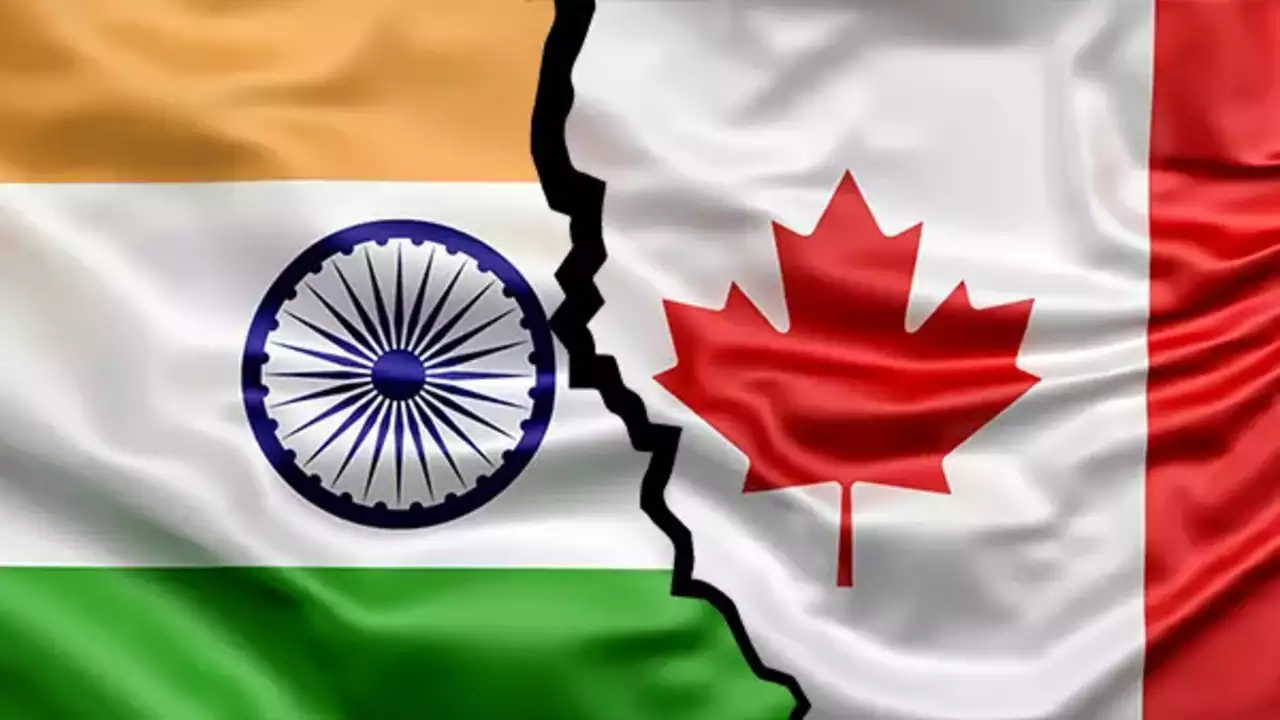The recent allegations made by Canada against India regarding interference in Canadian elections have triggered a significant diplomatic rift between the two nations. The Canadian report, presented by the Canadian Commission, claimed that India was the second most active foreign state involved in electoral interference, after China. This assertion has sparked a vehement rejection from India’s Ministry of External Affairs (MEA), which has instead accused Canada of long-standing interference in India’s internal affairs. The dispute is not only affecting bilateral relations but is also raising broader questions about the complex dynamics between these two countries.
India’s Strong Rejection of Canada’s Allegations
India’s response to the Canadian report was strong and direct. The MEA categorically rejected the claims of electoral interference, calling them unfounded and baseless. India’s diplomatic stance emphasizes a critical counter-narrative: it is, in fact, Canada that has been consistently interfering in India’s internal matters, particularly concerning issues like illegal migration and organized crime. India’s rejection of the report highlights its concern about how foreign nations, including Canada, meddle in its domestic policies, undermining its sovereignty.
India’s position serves to deflect the allegations and shift the conversation toward Canada’s own history of interference, especially in relation to the issues surrounding its Sikh diaspora, which remains a contentious topic in India-Canada relations. This strong rejection is more than just a denial; it is a strategy to assert India’s global standing and challenge the legitimacy of foreign accusations that are perceived as politically motivated.
Canada’s Long-Standing Interference in India’s Affairs
India’s Ministry of External Affairs has pointed to a long history of Canadian interference in India’s domestic issues, particularly in relation to the Sikh community. Over the years, Canada has been accused of providing a platform for Sikh separatist movements, including those advocating for an independent Khalistan. These movements have found support within certain factions of the Canadian Sikh diaspora, which has created friction between the two countries.
India has long expressed concern that the Canadian government has allowed such groups to operate freely on its soil, leading to an environment where these movements can thrive without legal repercussions. This ongoing issue has strained diplomatic relations, with India accusing Canada of turning a blind eye to activities that it considers detrimental to its national security and unity.
Implications of the Canadian Report on Foreign Electoral Interference
The Canadian report’s claim that India was the second most active foreign state involved in electoral interference after China carries significant implications. Firstly, it casts a shadow on India’s international reputation, particularly as it seeks to strengthen its global standing as a major emerging economy. Such accusations could be used by other nations to justify their own skepticism regarding India’s growing influence in global politics.
Moreover, the report raises questions about the credibility of foreign influence in democratic processes. Electoral interference is a serious matter, and accusations of this nature demand substantial evidence to back them up. Without concrete proof, these allegations could be dismissed as part of geopolitical rivalry or misinformation campaigns. However, the mere presence of such claims in official reports can have lasting consequences on diplomatic relations and perceptions.
The Canadian report states that India is the second most involved country after China in electoral interference in Canada. This claim, if proven true, suggests a deliberate attempt by India to influence the political landscape of another nation. Such interference could manifest in various forms, from disinformation campaigns to covert support for political candidates sympathetic to Indian interests.
India’s political leadership has vigorously denied these claims, arguing that it has always adhered to principles of non-interference in the internal affairs of other countries. The allegation highlights the growing concern among Western nations about India’s expanding influence and its approach to foreign policy. However, it also raises broader questions about the nature of international relations in the digital age, where information warfare is becoming an increasingly common tool in geopolitical competition.
The Diplomatic Tensions: Expulsion of Diplomats
One of the most significant actions arising from this dispute is the expulsion of diplomats. In October 2024, Canada expelled six Indian diplomats, accusing them of involvement in a campaign of violence against Canadian citizens linked to Indian government interests. This diplomatic action escalated the situation, prompting India to retaliate by expelling six Canadian diplomats.
The expulsion of diplomats is a clear sign of deteriorating bilateral relations, and it underscores the gravity of the situation. Diplomatic expulsions are a traditional method of signaling discontent and asserting a nation’s displeasure with another’s actions. In this case, both countries have engaged in this practice, but it does little to resolve the underlying issues and, instead, serves to heighten tensions further.
India’s decision to expel Canadian diplomats in response to Canada’s actions can be seen as a proportional response aimed at defending its national interests and sovereignty. India has condemned the allegations against its diplomats as baseless, which signals its refusal to tolerate any unfounded accusations. This response highlights India’s frustration with what it perceives as unjust criticism and the failure of Canada to understand the complexities of India’s domestic challenges.
The expulsion of diplomats by both sides is indicative of a breakdown in diplomatic communication and trust. This move also complicates any potential reconciliation efforts, as both nations now find themselves in a standoff where diplomatic channels have been closed, and the relationship has reached a new low.
Claims of Indian Involvement in a Campaign of Violence
The Canadian report accuses India of orchestrating a campaign of violence against Canadian citizens, linking it to the Indian government’s interests. This claim adds fuel to the fire of an already tense diplomatic situation. However, such accusations are difficult to substantiate without clear evidence, and it raises the issue of whether these allegations are being exaggerated or politicized for diplomatic leverage.
India vehemently denies any such involvement, which it views as an unjust attempt to tarnish its image. However, the persistence of such claims suggests that there is a deeper undercurrent of mistrust between the two nations, with Canada seemingly pointing to perceived violations of human rights as part of its diplomatic discourse.
Disinformation Campaigns and the Nijjar Killing
One of the most contentious aspects of the Canadian report is its discussion of the killing of Hardeep Singh Nijjar. The report claims that India spread disinformation in the aftermath of Nijjar’s killing, accusing it of using the incident as a retaliatory tactic. However, the report also acknowledges that no definitive link to a foreign state could be established regarding the killing, creating a contradiction in the narrative.
The debate surrounding Nijjar’s killing is emblematic of the larger challenges in the India-Canada relationship, where allegations of targeted violence and disinformation are intertwined with larger political and diplomatic disputes. The lack of conclusive evidence on both sides, however, leaves room for skepticism about the motivations behind such claims.
Challenges in India-Canada Relations
The escalating tensions between India and Canada highlight the deep-rooted challenges in their relationship. Issues like terrorism, Sikh separatism, human rights concerns, and electoral interference have plagued bilateral ties for years. These challenges are not easily resolved and require careful diplomatic handling.
Both nations must navigate these complexities with an eye toward mutual respect for sovereignty and non-interference in each other’s internal affairs. The growing rift, however, suggests that the relationship is unlikely to improve without a concerted effort to address these sensitive issues.
The India-Canada diplomatic dispute serves as a reminder of the broader dynamics of international relations in an era of geopolitical competition. As both countries seek to protect their national interests and assert their global influence, the impact of these disputes can ripple across the international stage.
The continued tension between India and Canada also sends a message to other nations about the potential consequences of meddling in the internal affairs of sovereign states. Furthermore, the expulsion of diplomats and the public exchange of accusations could inspire similar actions between other nations, further complicating global diplomatic relations.
The ongoing diplomatic rift between India and Canada is a significant development in international relations. The allegations of electoral interference, the expulsion of diplomats, and the growing mistrust between the two nations signal a deeper geopolitical struggle that will require careful negotiation to resolve. The impact of these tensions is not limited to the bilateral relationship; it has far-reaching consequences for international diplomacy and the role of countries in influencing global affairs. As the situation unfolds, the world will be watching closely to see how India and Canada navigate these challenges and whether they can find a way to rebuild trust and cooperation in the future.




